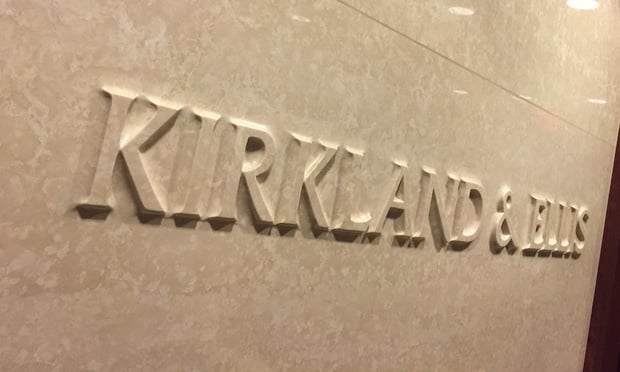Kirkland & Ellis will no longer require associates and summer associates to sign mandatory arbitration agreements.
The change comes after a group of Harvard law students last week called on classmates to boycott the firm during the upcoming summer associate recruiting season unless Kirkland abandoned the 10-year-old policy. A Kirkland spokesman did not immediately respond to requests for comment Wednesday on why the firm decided to do away with mandatory arbitration for all associates, nor was it clear whether the policy change applied to firm staff as well.
"The firm committee periodically reviews firm policies to ensure that they reflect best practices in the legal marketplace," reads Kirkland's Wednesday message to all attorneys. "Following a recent review, the firm committee has determined that the firm will no longer require arbitration of any employment disputes that may be brought by associates or summer associates."
The Pipeline Parity Project—the Harvard student group that launched the boycott, dubbed #DumpKirkland—circulated the statement on Twitter on Wednesday.
"With this email, Kirkland reversed a 10-year-old policy of requiring attorneys to waive their rights to sue over harassment, discrimination, and other workplaces abuses—a policy that the firm maintained despite widespread scrutiny," reads a statement from the Pipeline Parity Project. "Two weeks after the Pipeline Parity Project's #DumpKirkland campaign brought renewed attention to Kirkland's unjust policies, the firm officially dropped its requirement for arbitration of employment disputes brought by associates and summer associates."
Molly Coleman, a second-year law student and organizer with the Pipeline Parity Project, said in an interview Wednesday that she welcomes Kirkland's reversal on its use of mandatory arbitration agreements.
"We're definitely excited," she said. "It's great to see the power organizing can have, and that when you shed light on the issues, firms will respond."
But she cautioned that the Pipeline Parity Project remains concerned that staff and others at Kirkland may still be subject to mandatory arbitration, and that many other firms maintain such policies, even if they aren't upfront about it.
Law students began to push back against mandatory arbitration for summer associates in March, when it was revealed that Munger, Tolles & Olson used them. (The firm quickly did away with the agreements amid a slew of criticism.) Students from 14 elite law schools surveyed large firms and legal organizations about their use of mandatory arbitration for summer associates, but fewer than half of the firms responded. Kirkland was among the nonrespondents, and the Pipeline Parity Project made it the first boycott target because it knew the firm used mandatory arbitration agreements and because it's the largest firm in the nation by revenue.
As it celebrated Kirkland's change, the Pipeline Parity Project warned that other firms could be next.
"While we hope Kirkland & Ellis has ended their use of forced arbitration once and for all, the real question is: who are we dumping next?" said student organizer Vail Kohnert-Yount.
© 2025 ALM Global, LLC, All Rights Reserved. Request academic re-use from www.copyright.com. All other uses, submit a request to [email protected]. For more information visit Asset & Logo Licensing.







